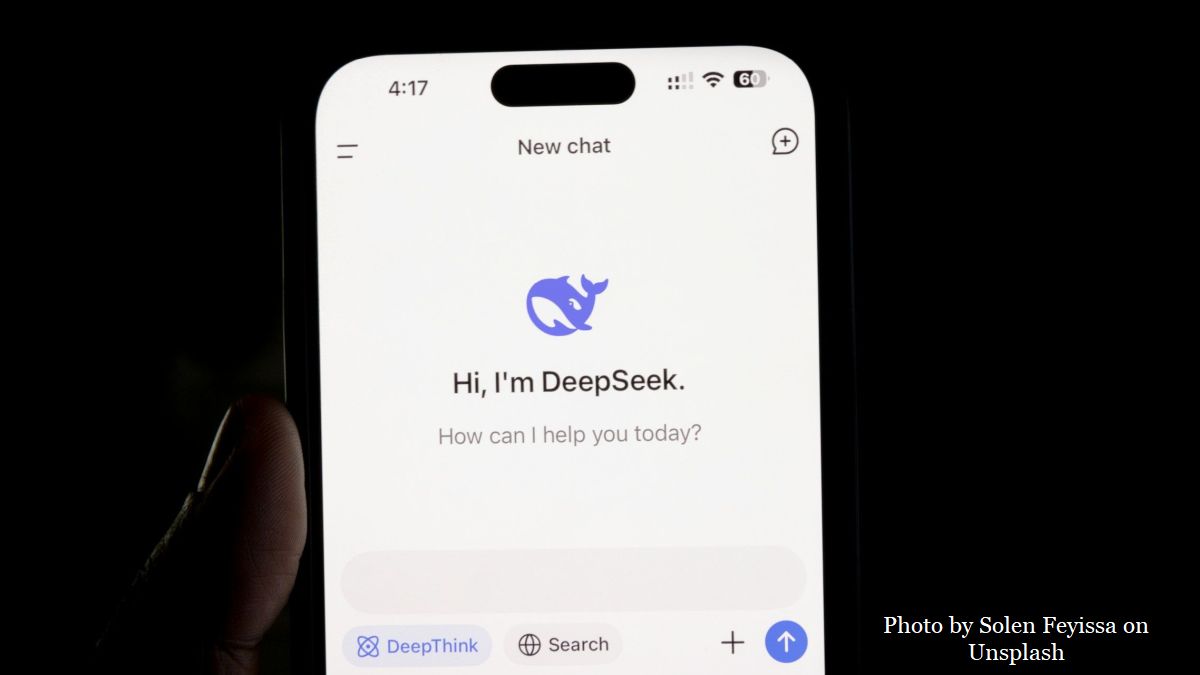The DeepSeek Phenomenon
'The Sputnik moment of AI'

Corina Cristea, 14.02.2025, 13:00
The shares of several major American companies, such as Nvidia, Microsoft, and Meta, collapsed in January after the Chinese company DeepSeek, involved in the development of artificial intelligence algorithms, questioned the “aura of invincibility” surrounding the US technology industry. Specifically, on the day that DeepSeek presented an AI model with performance comparable to those offered by Western chatbots, such as ChatGPT, but made at a much lower cost. Its low-cost model quickly became, shortly after its launch, the most downloaded free application in the Apple App Store in the United States, surpassing ChatGPT. It is the “Sputnik moment of AI”, estimated the Silicon Valley venture capitalist and Donald Trump advisor, Marc Andreessen, an allusion to the satellite launched by the Soviet Union in 1957, when the United States was surprised by the technological achievements of its rival. How valuable is the Chinese company’s achievement and what challenges does it bring? Florin Zeru, strategic communication specialist at SNSPA, said:
“I see the DeepSeek moment as a Pandora’s box. That is, wide accessibility, immense power and hidden risks. Imagine Pandora’s box from Greek mythology. But this time, instead of a physical box we have a computer program, a very powerful artificial intelligence model, full of vast knowledge and impressive abilities. But, just like in the myth, this box also comes with a warning. It is not just any box, but one that, once opened, releases both good and bad things into the world. And DeepSeek, by its open source nature, and its remarkable efficiency, makes this box accessible to almost anyone. And here is the big problem, here comes the parallel with the Pandora’s myth: once you have opened the box, you can’t go back. Once you have made such a powerful tool available to anyone, you no longer have total control over how it will be used. And, unfortunately, DeepSeek also has a weakness: it can be fooled. Through special instructions, called Jailbreak prompt, users can bypass the restrictions imposed by programmers and get answers that DeepSeek would normally refuse. And, let’s think about it this way, if in the hands of specialists DeepSeek can be used to accelerate scientific research, to create new drugs, to develop solutions to complex problems, in the hands of malicious people the same tool can be used to generate disinformation, to create malware, or even to plan attacks. It’s like giving every man on the street access to an extremely advanced technology without ensuring that they will use it responsibly.”
The production of the application cost about a thousand times less than what the big American artificial intelligence companies invest. How can DeepSeek afford to have such low prices? Because it is supported by the Chinese state, says Florin Zeru:
“It is a symbol of China’s ambitions to become a global leader in artificial intelligence. It is a signal that Beijing is investing heavily in this field and that it is determined to catch up with the United States. Until now, the United States has had a clear advantage in the field of AI, thanks to its companies, such as OpenAI, Google, Microsoft, but DeepSeek shows that this dominance is no longer guaranteed, and China is catching up strongly, and the gap is closing rapidly.”
DeepSeek’s success was also a surprise because it takes place under conditions in which the US, citing national security, has made efforts for years to restrict the sale of advanced AI chips to China. Concerns are also related to the fact that the data collected from users is stored on servers in China, under the control of two Chinese registered companies, something that DeepSeek confirmed. This concerns profile information, user requests, technical information, usage information, cookies, and payment information. What is at stake in this respect? Here is Flavia Durach, communications specialist:
“It’s not just about what we know about a specific person, but what we know about a specific internet user profile. Usually, we work with trends. Of course, you can spy on a person based on their internet activity. But from the perspective of competition, for example, between countries, like this discussion between the USA and China, I think it’s more about access to large data sets, which can be interpreted as statistics. And which, on the one hand, can help improve the quality of that company’s products and services. It can become better in relation to its competitors precisely because it has access to data that allows it to develop all kinds of adjacent services, already knowing what the public’s profile is, what it wants, what its behavior is. As for the fight between states, it can also be a problem of attempts at manipulation, influence, interference in elections when they can target the public, knowing their profile and behavior and preferences, with influence personalized messages.”
On a personal level, we can talk, says Flavia Durach, about hacking attempts, about theft of personal data, there are many ways in which you can do harm with data, depending, of course, on the context and circumstances.






























